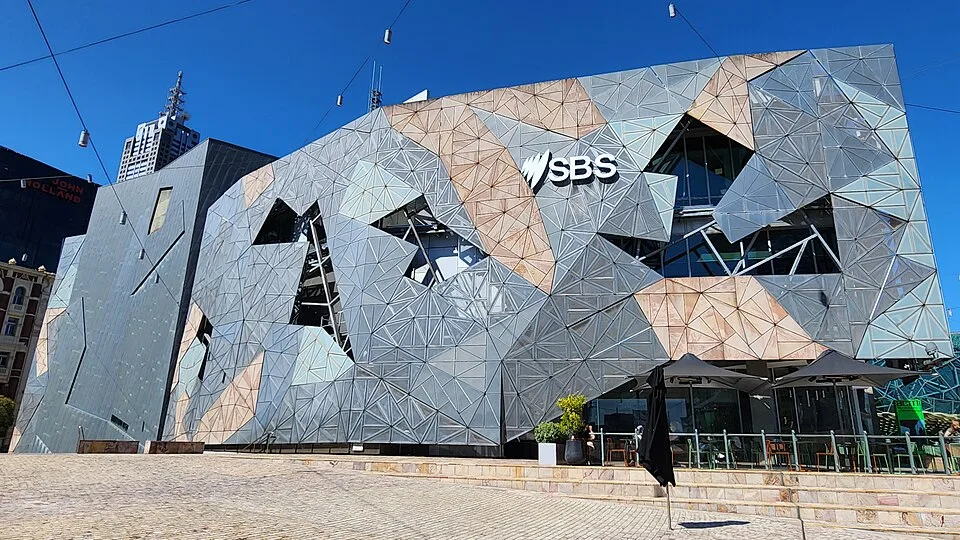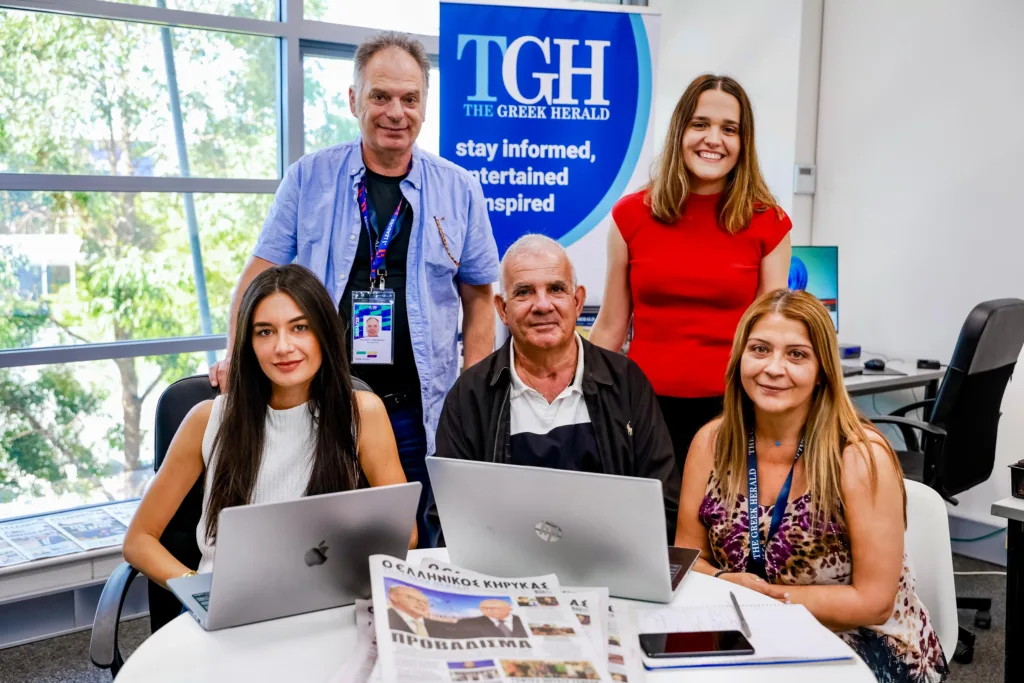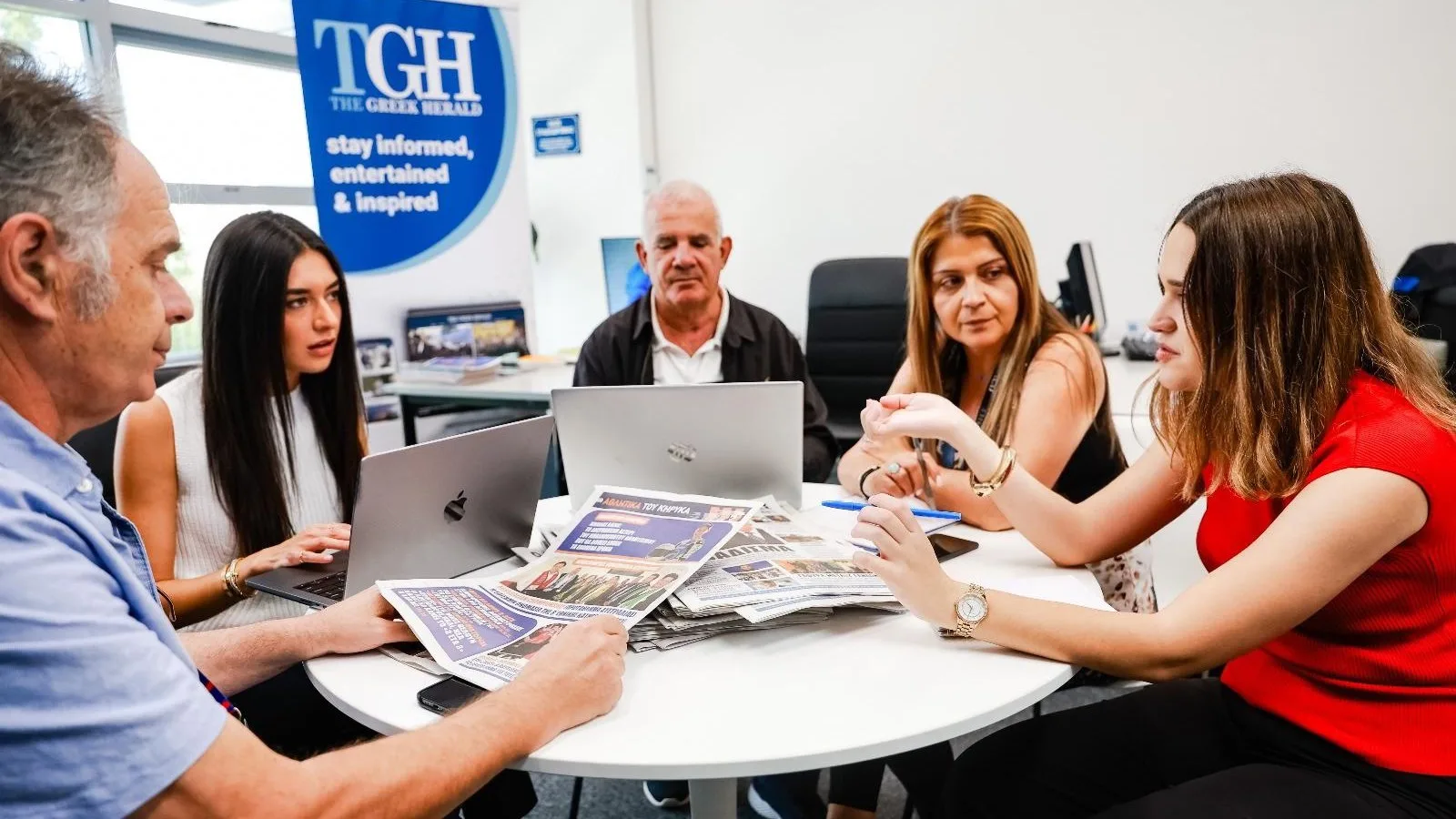By Iliada Bramich
Australia. It is a country known for its multiculturalism and vast ethnic diversity. Its population so diverse that according to the Australian Bureau of Statistics (ABS) in 2024 it was recorded that 31.5 percent of Australia’s population was born outside of Australia, which doesn’t factor in those from migrant families who speak English as a second language.
In Australia, this population has been and is continuing to be supported by a wide pool of multilingual news publications that service ethnic Australian families daily. There are more than 100 ethnic community radio stations and free to air multilingual news programs delivered, Australia-wide.
In an era when Australian journalism is fighting to be trusted and acknowledged, it is important for ethnic media platforms to remain relevant and important to its readers, ensuring voice and access to Australia’s ethnic populations.
The government-funded initiative SBS World News is a free-to-air multilingual station that has been delivering programs to dozens of ethnic communities in Australia.
SBS Director of Programs Mandi Wicks, who has been with SBS for over 15 years, directs SBS World News focusing on Australia-wide accessibility and innovation in the ethnic program sphere.
“[SBS] began as an initiative from the federal government at the time in 1975 to promote its health policy to new migrants, what we now know as Medicare. So, it was a great idea to talk to communities in their language about this new initiative and how it all worked,” Wick said.
“It proved to be so successful in communicating that it continued and became the second public broadcaster in Australia, starting with audio, and then, five years later, launched television. So, I think it’s evolved over years, and the communities that we serve changes.”
SBS is a unique Australian initiative in that it is Australia’s largest multilingual broadcaster and globally it differs from other current affairs programs due to its emphasis on multiculturalism and ethnic accessibility.
“The platforms that we choose to distribute content on have changed significantly over 50 years, from television and linear [programming] only to now, of course, being fully digital across all platforms, whether it’s websites or apps…” Wicks said.
“In order to stay relevant, we need to be essentially where audiences are choosing to consume their media and continue to evolve with that… We’ve been a broadcast that’s been quite agile and nimble, launching services like SBS On Demand… We’re very, very proud of being quite innovative.”

Media Diversity Australia reported in 2022 that even though 48 percent of Australians have a parent born overseas, over 78 percent of TV presenters and reporters are of an Anglocentric background. Emphasising the need of longevity and interaction with independent multilingual media.
While SBS is one of the publications delivering multilingual news, there are also dozens of independent publications throughout Australia.
There are multiple large publications like Il Globo (an Italian publication) and Le Courier (a French publication) presenting Australian and global affairs in a translated and delivered format.
A pioneering publication, The Greek Herald, is one of the biggest ethnic publications servicing Greek and Cypriot Australians since 1926.
Dimitria Skalkos, Publisher of The Greek Herald, maintains the importance of independent ethnic media.
“Independent multicultural media are often underfunded despite being essential for community cohesion, language preservation, and democratic engagement — particularly in diasporic communities that may otherwise be marginalised in national conversations,” Ms Skalkos said.
“If these voices aren’t supported in a meaningful and structured way, there is a real risk of information deserts forming, where important community-specific narratives are lost altogether.”
For Ms Skalkos, multicultural media has always been a source of connection and a ‘lifeline’ to the Greek community she grew up in.
“Our home and office were filled with print runs, community papers, headlines in dozens of languages. The Greek Herald was central among them — I remember it vividly on the kitchen table, anchoring conversations in our home and within the Greek community,” she recalls.
Ms Skalkos adds that The Greek Herald has served as a vital record of community life — a living archive of migration stories, civic contributions, cultural identity, and political participation. Its archives are frequently referenced by students, researchers, and historians.
Cultural sensitivity and access to content:
Accessibility and willingness to connect with current affairs comes into question when multilingual publications produce.
For SBS there is an added pressure due to it being a government funded program. Wicks mentioned that journalistic guidelines are strongly implemented at SBS and influence not only how their multilingual programs are produced, but all their content.
“We would often hear from some communities who didn’t particularly want to hear a different perspective on an issue. In their minds, we should be supporting one perspective and the perspective they want to hear, probably based on their lived experience…” Wicks said.
“[But] SBS, needs to be… balanced and impartial, and so we do try to take the time to explain what we do and why we do it, why we cannot breach a code of practice, and that the journalists working on those services cannot be breaching those services.”
Alternatively, Ms Skalkos acknowledges SBS’s importance in multilingual programming, but emphasises the possibility for a lack of nuance and ability to hone in on an issue.
“Independent publications like The Greek Herald are deeply embedded in their communities. Our team lives within the community, participates in its events, understands its internal dynamics, and reflects that lived experience in our reporting,” Ms Skalkos said.
“We cover the kinds of culturally specific, sensitive, and sometimes controversial issues that can be overlooked or underreported in broader, government-funded models — including issues of internal community governance, mental health, intergenerational conflict, and identity
“Platforms like SBS play an important and complementary role, but their scope means they can’t always capture the depth, specificity, and emotional resonance that independent, community-embedded publications bring to their reporting. We serve with focus.”
Ms Skalkos explains that The Greek Herald is often the first point of contact for community members seeking clarification or help interpreting sensitive issues, and that the community holds a strong sense of ownership over the paper, with an expectation that it will assist and advocate on their behalf.

Ethnic media in Australia is essential to upholding the journalistic structures of accessible and interactive media. It supports a cohesive environment and most importantly, ensures that all Australian residents can interact within its democracy.
Although Ms Skalkos pushes for further focus and change in attitude towards the importance of ethnically delivered media.
“Like many in the sector, we’ve restructured, adapted, and innovated to remain viable — but we are now at a critical point. Without meaningful support, independent multicultural media face the risk of closure — just as many regional and community titles have in recent years,” she said.
“While both the Victorian Government and the Federal Government have taken encouraging steps to support the sector — with Victoria leading more consistent engagement — there is still significant work to be done. We continue to call for funding and support frameworks that match those extended to regional media across Australia.”
In 2023, the NSW Government, through the Department of Customer Service and Multicultural NSW, conducted a Multicultural Media and Policy Review, which led to an increase in campaign expenditure for multicultural and Aboriginal audiences from 7.5% to 9%. However, Ms Skalkos explains that this uplift has done little to benefit independent outlets on the ground. SBS — already publicly funded — continues to be included in this spend, while much of the budget is directed to intermediaries or other campaign activities, rather than reaching front-line community publishers directly.
Campaigns are also typically limited to only the top four or five CALD language groups — such as Arabic, Mandarin, Cantonese, Vietnamese and Hindi — while Greek is often overlooked. As a result, vital campaigns on domestic violence, gambling, disability, Medicare, or services like Sydney Water often fail to reach the Greek community.
“We understand the need to prioritise, but it’s not equitable to continually target only a few and overlook the rest. It can feel as though engagement is being measured by reach to some communities, rather than ensuring inclusive access across the board,” Ms Skalkos said.
She also notes that the Federal Government’s Multicultural Framework Review, led by Dr Hass Dellal AO and Hakan Harman, recommended the establishment of structured funding models and the formal recognition of multicultural media as essential public interest infrastructure. The review addressed the systemic challenges faced by independent publishers, explicitly referenced the role of organisations such as Independent Multicultural Media Australia (IMMA), and called for improved inclusion in national communications strategies.
The Greek Herald is a member of IMMA, a national alliance that continues to advocate for meaningful and equitable support across all levels of government.
“These outlets are not a luxury — they are essential infrastructure for civic participation and community cohesion. If we lose them, we risk deepening information deserts and silencing diverse voices in Australia’s media landscape,” Ms Skalkos concluded.
